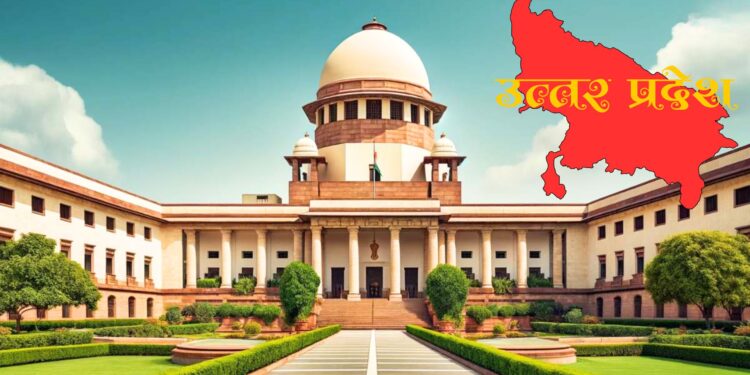The Supreme Court has expressed growing concern over the increasing trend of civil disputes being pursued as criminal cases, particularly in Uttar Pradesh [Rikhab Birani and Anr. v. State of Uttar Pradesh and Anr.].
In a recent hearing, the Bench of Chief Justice of India (CJI) Sanjiv Khanna and Justice Sanjay Kumar noted the issue while considering a plea to quash a criminal case involving cheating and breach of trust. CJI Khanna observed, “This is yet another case where a civil dispute has been transformed into a criminal one. Such practices are rampant in many states, especially Uttar Pradesh. It is wrong and should not continue.”
The case involved two individuals accused of deceiving another person into handing over money by falsely promising that a sale deed would be executed in their favor. The two were subsequently charged with criminal offenses, including cheating, breach of trust, outraging a woman’s modesty, insult, and criminal intimidation.
The accused argued that they were wrongly implicated, asserting that the matter was purely a civil dispute over a breach of contract. Despite their claims, the Allahabad High Court had refused to quash the charges earlier in May, stating that a prima facie case existed against them. As a result, the accused approached the Supreme Court for relief.
In their appeal, the accused emphasized that the case only involved a breach of contract and did not constitute criminal cheating. On November 11, the Supreme Court issued a notice in the matter and stayed the criminal proceedings in the trial court.
This case highlights the growing concern regarding the misuse of criminal law to address civil disputes, with Uttar Pradesh being particularly singled out for this practice. The Supreme Court’s intervention underscores the need to preserve the distinction between civil and criminal matters, ensuring that criminal proceedings are not used to resolve contractual issues. The Court’s comments are a cautionary reminder about the importance of ensuring criminal law is not misused for matters better suited to civil litigation.

















